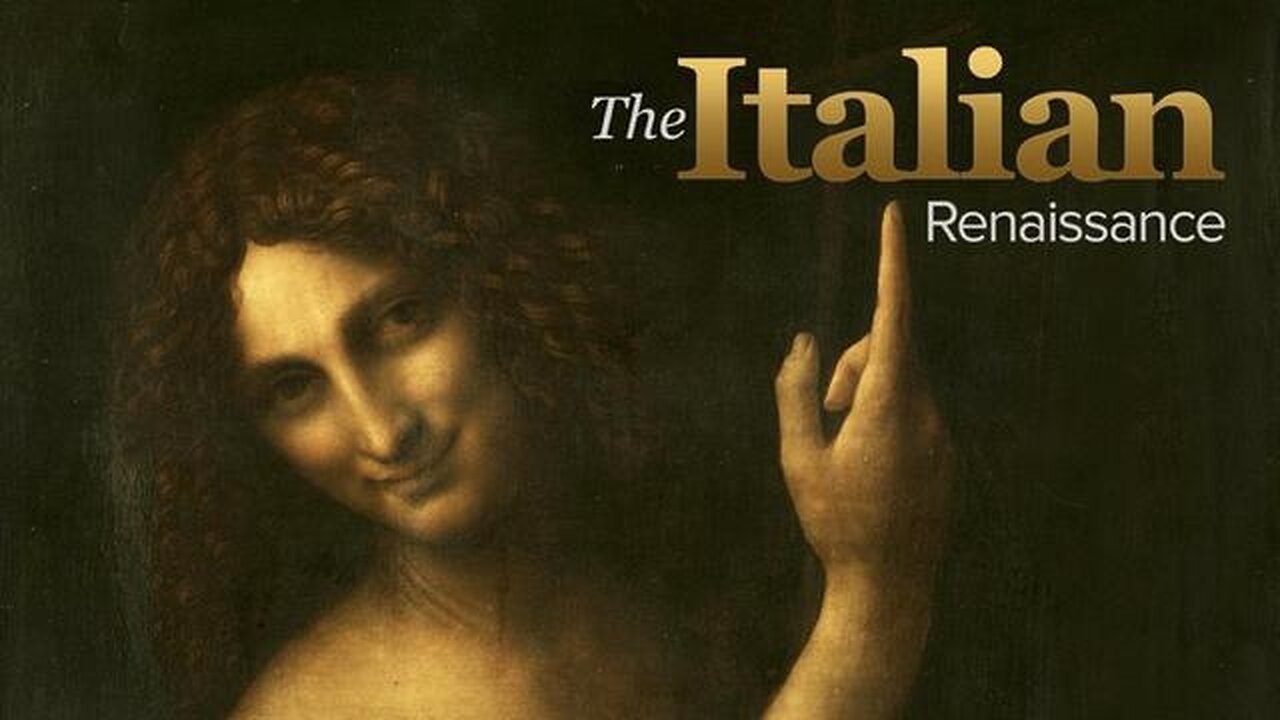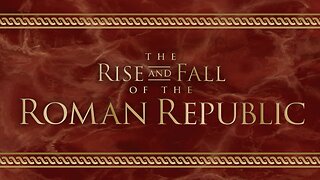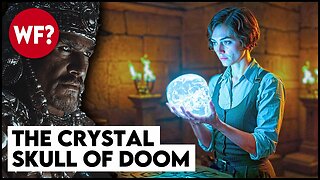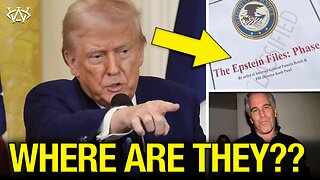Premium Only Content

The Italian Renaissance | The Florence of Lorenzo de’ Medici (Lecture 12)
Lecture 12: Despite the republican constitution of Florence, Lorenzo was born, in effect, a Renaissance prince. His father and grandfather had managed the state, using the Medici faction and their enormous wealth as instruments for control. Only 20 in 1469, when his father, Piero, died, Lorenzo was thrust into the political and diplomatic currents of the peninsula at a moment of general peace, leaving him free to engage in his true interest, the patronage of art and literature. As a collector, he filled the huge palace built by his grandfather with ancient sculpture, rare gems, and objets de vertu; he supported such poets as Poliziano and such philosophers as Pico della Mirandola; he discovered the genius of the young Michelangelo and patronized Botticelli. His own talents as a poet, diplomat, and statesman were such that he had little difficulty maintaining his control of the fractious Florentines.
However, there was opposition, led internally by the ancient Pazzi family, jealous of the Medici hegemony, and externally by Pope Sixtus IV (d. 1484), who believed that Lorenzo was blocking the creation of a principality for his nephew. There was a conspiracy in 1478 to murder Lorenzo and his brother, Giuliano, at mass. The plot failed, although Giuliano was killed, and the aftermath was bloody vengeance on the conspirators. Angry, the pope excommunicated Lorenzo and declared war on him personally, ravaging Florentine territory. Rather than submit, Lorenzo slid away to Naples, the capital of the king commanding the papal armies, and made a separate peace, leaving Sixtus no choice but to abandon his aggression. Thereafter, Lorenzo tightened his control on the state, and a certain sadness characterized the last decade of his life.
Primary Source Texts:
Kenneth R. Bartlett, “Florentine Neoplatonism and Mysticism,” pp. 125–128, 134–137, and “The Church and the Papacy,” pp. 329–336, in The Civilization of the Italian Renaissance.
Secondary Sources:
Judith Hook, Lorenzo de’Medici: An Historical Biography.
Lauro Martines, April Blood: Florence and the Plot Against the Medici.
Supplementary Reading:
Harold Acton, The Pazzi Conspiracy: The Plot Against the Medici.
“Angelo Poliziano: The Pazzi Conspiracy,” in Benjamin G. Kohl and Ronald G. Witt, eds., The Earthly Republic: Italian Humanists on Government and Society.
Lecture 13: https://rumble.com/v4xlel6-the-italian-renaissance-venice-the-most-serene-republic-lecture-13.html
-
 18:01
18:01
The Great Courses
1 month agoThe Rise And Fall Of The Roman Republic | The Roman Constitution (Lecture 4)
2151 -
 25:53
25:53
Stephen Gardner
7 hours ago🔥BREAKING: Trump HATING LAWYER busted in $17 million money laundering scheme!
23.6K89 -
 20:10
20:10
CartierFamily
13 hours agoAndrew Schulz DESTROYS Charlamagne’s WOKE Meltdown on DOGE & Elon Musk!
103K93 -
 33:56
33:56
The Why Files
9 days agoLegend of the 13 Crystal Skulls | From Mars to the Maya
57.9K37 -
 2:56:14
2:56:14
TimcastIRL
7 hours agoEPSTEIN Files DROP, FBI GOES ROGUE, AG Says They COVERED UP Epstein Case w/Amber Duke | Timcast IRL
176K94 -
 1:39:23
1:39:23
Kim Iversen
7 hours ago"Canada's Trump" Is Trudeau’s Worst Nightmare: Is Maxime Bernier the Future of Canada?
69.6K73 -
 DVR
DVR
Bannons War Room
10 days agoWarRoom Live
2.66M446 -
 16:06
16:06
The Rubin Report
14 hours agoProof the Islamist Threat in England Can No Longer Be Ignored | Winston Marshall
85.7K82 -
 2:07:07
2:07:07
Robert Gouveia
11 hours agoFBI Files Coverup! Bondi FURIOUS; SCOTUS Stops Judge; Special Counsel; FBI Does
110K84 -
 56:15
56:15
Candace Show Podcast
11 hours agoBREAKING: My FIRST Prison Phone Call With Harvey Weinstein | Candace Ep 153
168K112